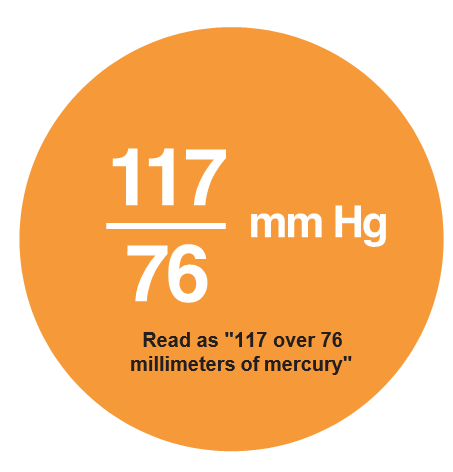High blood pressure, known as the “silent killer”, affects nearly half of U.S. adults (CDC, 2020).
Most of the time, high blood pressure (HBP, or hypertension) has no obvious symptoms to indicate that something is wrong. The best ways to protect yourself are being aware of the risks and making changes that matter.
High blood pressure (hypertension) can lead to a host of serious problems, including heart attack, heart failure and stroke. That’s why it’s important to know your risk factors for developing high blood pressure – and to take steps to lower your risks.
Alabama has the third highest rate of hypertension in the United States and the highest rate of death caused by hypertension in the country.
By using a device called a blood pressure monitor, you can measure your blood pressure to see if it’s in a healthy range. Your blood pressure is recoded as two numbers:

Blood pressure numbers are within the normal (optimal) range of less than 120-80 mm Hg.
Blood pressure is consistently ranging from 120-129/less than 80 mm Hg. People with pre-hypertension are likely to develop high blood pressure unless steps are taken to control it.
Blood pressure is consistently ranging from 130-139/80-89 mm Hg. At this stage of high blood pressure, doctors are likely to prescribe lifestyle changes and may consider adding blood pressure medication.
Blood pressure is consistently ranging at levels greater than 140/90 mm Hg. At this stage of high blood pressure, doctors are likely to prescribe a combination of blood pressure medications along with lifestyle changes.
This is when high blood pressure requires emergency medical attention. If your blood pressure is higher than 180/120 mm Hg [and you are not experiencing symptoms such as chest pain, shortness of breath, back pain, numbness/weakness, changes in vision or difficulty speaking, wait about five minutes and take it again].
| Blood Pressure Category | Systolic mm Hg (upper #) | Diastolic mm Hg (lower #) |
|---|---|---|
| Normal | Less than 120 | Less than 80 |
| Elevated | 120 – 129 | Less than 80 |
| High Blood Pressure (Hypertension) Stage 1 | 130 – 139 | 80 – 89 |
| High Blood Pressure (Hypertension) Stage 2 | 140 or Higher | 90 or Higher |
| Hypertensive Crisis (Emergency care needed) | Higher than 180 | Higher than 120 |
High blood pressure cannot be cured. It can be controlled with lifestyle changes and, when needed, medication. YOU can manage your high blood pressure by:
Physical activity is great for our heart, circulatory system and blood pressure.
A diet that is too high in salt consumption, as well as calories, saturated fat and sugar carries an additional risk of high blood pressure.
Carrying too much weight puts an extra strain on your heart and circulatory system and can cause serious health problems.
Regular, heavy use of alcohol can cause heart failure, stroke and irregular heartbeats. Drinking too much alcohol can also cause your blood pressure to increase dramatically.
Using tobacco can cause your blood pressure to temporarily increase and can contribute to damage arteries, which can make high blood pressure worse.
Stress is not necessarily bad, but too much stress may contribute to increased blood pressure. Too much stress can also encourage behaviors that increase blood pressure, such as poor diet, physical inactivity, using tobacco or drinking alcohol more than usual.